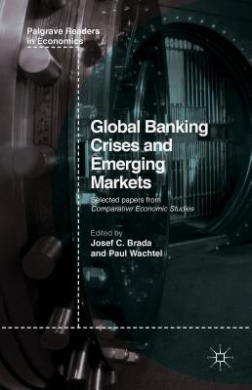Description
This timely reader of seminal papers published by Palgrave on behalf of Comparative Economic Studies, examines how and why foreign banks enter emerging markets and the positive benefits they bring to the host countries. Edited By Josef C. Brada and Paul Wachtel List of Figures List of Tables Notes on Editors 1. Introduction Josef C. Brada, Paul Wachtel 2. The Dark and the Bright Side of Global Banking: A (Somewhat) Cautionary Tale from Emerging Europe Ralph de Haas 3. From Reputation amidst Uncertainty to Commitment under Stress: More than a Decade of Foreign-Owned Banking in Transition Economies John P. Bonin 4. Banking Competition and Efficiency: A Micro-Data Analysis on the Czech Banking Industry Anca Pruteanu-Podpiera, Laurent Weill, Franziska Schobert 5. Relationship Lending in Emerging Markets: Evidence from the Czech Republic Adam GerSl, Petr Jakubk 6. Private-Sector Credit in Central and Eastern Europe: New (Over) Shooting Stars? Balzs gert, Peter Back, Tina Zumer 7. The Boom in Household Lending in Transition Countries: A Croatian Case Study and a Cross-Country Analysis of Determinants Evan Kraft 8. Are Weak Banks Leading Credit Booms? Evidence from Emerging Europe Natalia T. Tamirisa, Deniz O. Igan 9. What Drives Bank Lending in Domestic and Foreign Currency Loans in a Small Open Transition Economy with Fixed Exchange Rate? The Case of Macedonia Jane Bogoev 10. Do Foreign Banks Stabilize Cross-Border Bank Flows and Domestic Lending in Emerging Markets? Evidence from the Global Financial Crisis Ursula Vogel, Adalbert Winkler 11. Risk Taking by Banks in Transition Countries Rainer Haselmann, Paul Wachtel 12. The Sequence of Bank Liberalisation: Financial Repression versus Capital Requirements in Russia Sophie Claeys, Koen Schoors, Rudi Vandervennet 13. Impact and Implementation Challenges of the Basel Framework for Emerging, Developing and Small Economies Jan Frait, Vladimr TomSk Index ?






